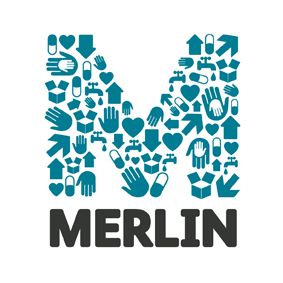News -
1995 – War in Chechnya
Many of the disasters Merlin confronts have been caused by war. Each time it is civilians who pay the highest price.
In 1995, just two years after Merlin was founded, we had already responded to crises caused by conflict. At that time there had been growing concern about the humanitarian situation in Chechnya, following the outbreak of war with Russia in November 1994. When Merlin began its programme in the Chechen capital of Grozny in 1995, it was one of only three international medical aid agencies in the region, addressing the devastating effects of the conflict.
Grozny means “terrible” or “awesome”, although neither could accurately describe the horror which had befallen the city, and that the Merlin team were faced with.
Hundreds of thousands fled Grozny during the conflict with Russia but many thousands stayed in the city. Those who stayed were often the elderly, sick, and immobile, thus unable to flee. Water, food and fuel supplies were cut, hospitals gutted, a severe lack of any medication, and buildings and homes were destroyed. The centre of the city was completely raised to the ground.
The Merlin team arrived at a home for the elderly and infirm on the outskirts of Grozny where they found Malika, a patient of the home, digging a grave in the garden with four other women. 28 of the 100 residents had died of hypothermia or starvation over the winter.
But the situation in the city was about to get worse.
The thousands of citizens who had managed to flee during the fighting soon started to return, and the number of inhabitants reached 200,000 in a matter of weeks.
Not only did they return to find their homes gone, but the sanitation levels were appalling. Even though a river ran through the city, it was contaminated with corpses and untreated sewage. There was only one litre of ‘safe’ water available per person per day.
The lack of sanitation, rising temperatures, overcrowding and shallow graves throughout the city increased the risk of epidemics and demanded a swift response. Five tonnes of emergency supplies were immediately transported to the region.
Merlin set up small out-patient dispensaries around the city centre. A mobile clinic meant a team could reach those unable to attend a dispensary, in particular the elderly and infirm. Additionally, preparations were made for a ward in one of the hospitals that survived, in case of an outbreak of cholera and typhoid.
Merlin sanitation experts installed clean water tanks and pipes enabling 400,000 litres of drinkable water to be pumped into the city per day.
Health surveys also alerted the team to the need for vaccinations against diphtheria, polio and measles, and thousands of people were immunised.
The situation in Chechnya remained dangerous over the following months and years, not only for citizens but also for aid agencies. In 1996 six Red Cross workers were murdered as they slept in a hospital south west of Grozy, and some aid agencies began to pull out of the region.
By 1998, as other agencies pulled out, Merlin became the main provider of healthcare in the whole country. In the end, sadly, after coming under attack several times and with an increasing threat of kidnapping, the Merlin team also had to be evacuated.
Topics
- Health, Health Care, Pharmaceuticals
Categories
- conflict and natural disasters
- healthcare to vulnerable communities
- international aid
- international aid agency
- international health charity
- malnutrition
- medical charity
- merlin
- nutrition
- chechnya
- conflict
